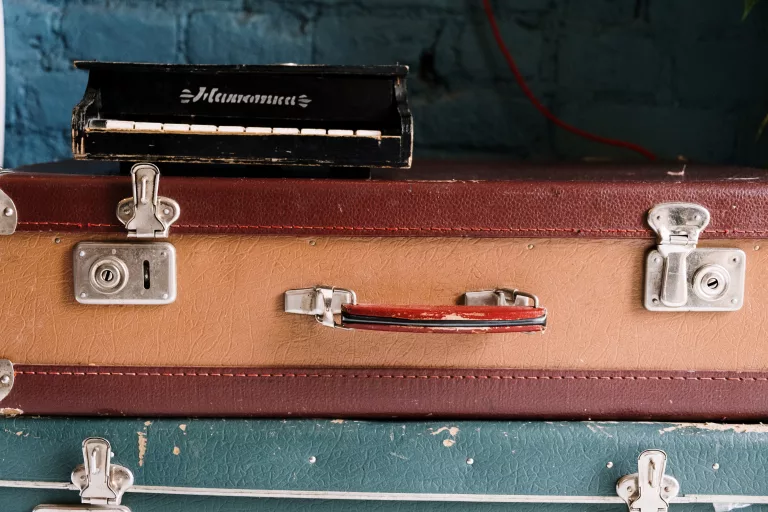Winter in Oxford is decidedly cold. Starting in October, temperatures drop from over 20 degrees Celsius to freezing, sometimes overnight. While many student rooms at Oxford’s colleges still have vestigial fireplaces, the heating today runs almost entirely on gas and electricity. This system is certainly efficient, but it does give colleges the ability to control the heating that students receive in their accommodation. And what happens when colleges turn the heating off?
Heating and health
All student accommodation is required to be kept at a safe and healthy temperature, defined by the NHS as above 18 degrees Celsius for bedrooms and above 21 degrees Celsius for living rooms and other communal spaces. Below these temperatures, the NHS warns, people are more likely to suffer from weakened immune systems and fall ill. And the illnesses can be serious. According to the NHS, lower room temperatures make occupants more susceptible to increased blood pressure and can increase risk of heart attacks, strokes, and chest infections.
The policy that colleges should adopt seems fairly straightforward in theory – keep the student accommodation at a safe and healthy temperature. But in practice, there are many questions that arise with no clear answer. Must colleges turn the heating on at night? Should students have control of the thermostat in their room? When in autumn should colleges turn on the heating? The policies that colleges adopt in light of these complications are crucial and influence how frequently students get ill during Oxford’s short terms, where missing even a few days due to illness can be an enormous setback.
On or off at night
Many colleges have policies of keeping the heating on during the night, albeit often at lower temperatures than during the day. At Corpus Christi College, for instance, the default temperature for student rooms is 20 degrees Celsius during the day and 17 degrees Celsius at night (10 pm to 6:30 am) and “non-peak hours” (10:30 am to 4:30 pm). For students who desire warmer temperatures, there is also a “comfort mode” that boosts the daytime temperature to 23 degrees Celsius and the nighttime/non-peak temperatures to 20 degrees Celsius.
Other colleges have more controversially experimented with turning the heating off completely at night. At the beginning of Michaelmas 2023, Cherwell investigated Keble College’s new policy of cutting nighttime heating and the opposing student petition that resulted from the policy. One Keble student recently told Cherwell that despite the student petition and increased pressure on the college to keep the heating turned on at night, Keble refused to go back to its old policy. Instead, it set up a complaints form for students adversely affected by the lack of nighttime heat.
One of Keble’s stated reasons for limiting the amount of heat consumption was the college’s determination “to take action to address the climate crisis and become more sustainable.” However, some students have expressed scepticism that these environmental reasons, and not penny-pinching, are the true motivations behind the college policy. “They turn it [the heating] off … at night under the guise of sustainability” one student told Cherwell on social media.
Another student at St. Catherine’s College told Cherwell that she faced similar problems with insufficient heating in student accommodation: “Catz never has the heating on. They’ll tell you to fill in the maintenance request form, they come and ‘fix’ it and it still doesn’t work so I’ve had to borrow a portable heater from the porter’s lodge in winter. They told us the heating is off from 11 pm – 6 am officially.”
A second-year Lincoln College student complained about a lack of transparency on the issue of nighttime heating. She told Cherwell that, as a night owl, she preferred to do her work later in the evening but that it was “difficult to do work in [her] room when it’s freezing.” She further claimed that she did not remember receiving any advance communication from Lincoln stating it would be turning her heating off at night.
The hunt for warm October
The task of deciding when in autumn to turn on heating in student accommodation proves contentious each year. Colleges generally turn heating on sometime in October, but many have historically delayed the introduction of heating to the last possible moment and only reneged after significant student pressure.
During Michaelmas 2023, with temperatures regularly dropping below 10 degrees Celsius, St. Hugh’s College elected to turn on the heating on 13 October ahead of the scheduled 31 October. A facebook post from the St. Hugh’s JCR President at the time read: “Complaints have worked and college will be turning on the heating early (today) instead of the 31st.”
Even after this announcement, however, students reportedly faced issues getting heating in their rooms. The college sent another email on 17 October that read: “As the system has been switched off for months over the summer and has had to be turned on in a hurry without the usual pre-checks, we experienced some start-up issues in a few isolated parts of the site earlier this week.”
A first-year St. Hugh’s student told Cherwell that she did not accept the claim about “a few isolated sites” since the problem “was happening a lot in the main building.” Another St. Hugh’s student informed Cherwell on social media that in order to get the heating turned on students “were literally buying thermometers to show the college it was colder than 16 degrees in rooms.”
In response, St. Hugh’s told Cherwell: “It is our policy to turn the heating on early in the event of a cold weather snap such as the one forecast on 16 October 2023. The decision to turn on the heating was routine and not in response to any student complaints. The College did receive reports of problems with the heating in some buildings on 16 October, but these were all resolved either later that day or the following morning.”
St. Hugh’s was not the only college accused of employing this tactic. A Pembroke College student told Cherwell that his college did not turn on the heating in his room until three weeks into term (mid-to-late October). By this point, temperatures were already regularly falling below 5 degrees Celsius.
Pay as you go
Another issue colleges must contend with is how much to charge students for heating. Most colleges solve this problem by adjusting the fixed total accommodation fees to reflect the cost of electricity and gas.
According to one second-year student at Jesus College, however, the cost of heating at Jesus’ off-site accommodation is not factored into the fixed accommodation costs. Instead, students pay for the heating that they use during term. While this might seem like an efficient way to ensure that students use what they pay for and pay for what they use, in practice, it has the effect of incentivising less affluent students – who are looking to save money wherever possible – to freeze. One Jesus student affected by this policy told Cherwell: “My flatmates and I all winter have avoided turning the heating on because we know the energy prices are both expensive and opaque.”
He continued ironically: “Sometimes it is funny to wake up and see your breath condensing in a cloud of fog but I believe the experience overall has brought us together as friends and certainly saved us a few pound sterling.”
This policy of “pay-as-you-go” has attracted criticism similar to the criticism levelled against the policy of providing financial scholarships for high preliminary exam results. In both cases, detractors allege that the students who are the most well off and who thus require the least help are the ones who receive assistance, while the low-income students who are already at a disadvantage only fall further behind.
In response, some say that in the real world, people pay for heating on this basis. But others argue that at university, accommodation should be egalitarian, not differentiated based on ability or willingness to pay extra for utilities as essential as heating.
This list of issues related to heating in student accommodation is by no means exhaustive. There were dozens of student complaints submitted to Cherwell, and they all deserve attention for which there is not sufficient space in this investigation. What should be clear is that with so many students suffering from lack of heating in their accommodation, we are in the winter of our discontent. And glorious summer won’t be here for a while.











